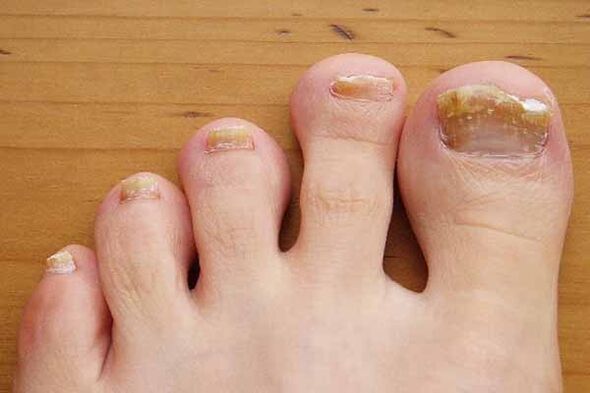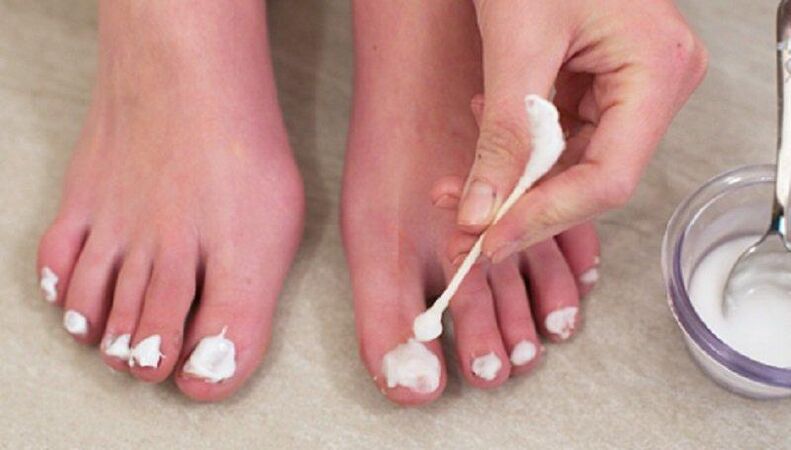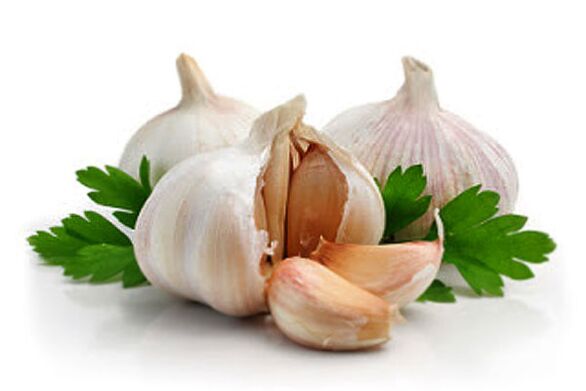
Healthy skin and nails are a source of pride for any person. But what if the infection has damaged their appearance? The answer is simple: destroy the infection! One of the causative agents of diseases that damage the outer skin is a fungus. Over the centuries, people have learned to combat it using available natural remedies.
The fungus' favorite habitats on the human body are the feet, fingers and toenails. The pathogen multiplies in a warm and humid alkaline environment, so it is rarely found on the hands. The infection is spread from person to person and often occurs in places such as baths, saunas and swimming pools. Another route of infection is through common objects (shoes, towels).
In medicine, the skin fungus is called mycosis, and if the pathogen has settled on the nails, then it is called onychomycosis. Fungal diseases are not easy to cure. If the disease is not diagnosed in time, it may take months of hard work to combat it. To treat mushrooms, all means are good: medicines and traditional recipes.
Nail fungus can be cured with folk remedies, provided that the root part of the nail (matrix) and the nail bed are not affected. Deep penetration of the fungus into tissues requires treatment with systemic drugs.
Signs of nail fungus:
- thickening and discoloration of the nail plate;
- loosening of the outer layer of the nail;
- fragility and splitting of the nail;
- redness, itching and burning of the nail fold;
- unpleasant smell from the nail.
If any of these symptoms appear on your nail, be sure to see a doctor. A dermatologist or mycologist diagnoses and treats fungal diseases.
Forums often discuss folk remedies that can cure nail fungus. People share effective methods of getting rid of nail fungus or complain that this or that medication did not help.
Some of the most effective ways to get rid of fungus include:
- apple or table vinegar;
- celandine;
- iodine;
- tea mushroom;
- garlic and onion;
- coffee.
How to quickly cure nail fungus?

Timely and correctly chosen treatment can help quickly eliminate nail fungus.
If you do not want to be treated with medications and decide to resort to traditional medicine, in any case consult your doctor.
Each of the remedies of traditional medicine can help one person, but will be useless for another.
Therefore, in order to quickly and effectively treat onychomycosis, diagnosis and consultation in a medical institution are necessary.
How to get rid of fungus on nails?
The causative agent of the disease can be destroyed or eradicated through external treatments: baths, compresses, applications. Fungi thrive in a moist alkaline environment and an acidic environment is detrimental to them, which is why products such as vinegar and lemon are effective. Plants with strong bactericidal properties also fight fungi well.
Traditional treatment of toenail fungus: effective recipes
Vinegar. A universal remedy for treating fungus, even if it affects more than half of the nail. You can use both table vinegar and apple cider vinegar. If the nail plate is slightly damaged, make a bath with 9% vinegar added at the rate of 1 part to 8 parts of water.
The procedure must be repeated every two days.
Popular recipes for nail fungus often contain vinegar as a component of the medicinal mixture. For example, a compress of vinegar, eggs and vodka. The mixture keeps well in the refrigerator and is used as needed.How to do:
- Pour 2 tablespoons of vinegar essence and vodka into a container, add three egg whites, mix everything well.
- Dip a thin strip of bandage or a cotton swab into the resulting mixture and apply it to the sore nail for 15 minutes.
- Repeat daily until a new nail grows.
A similar recipe with vinegar has the following composition:
- vinegar essence - 1 teaspoon;
- dimethyl phthalate - 1 teaspoon;
- vegetable oil - 1 teaspoon;
- egg - 1 piece
Compresses are applied for several hours, then the feet are rinsed with running water. Do it once a day for 4 days with the same rest interval. Treatment with this recipe continues until a healthy nail grows back.
Iodine. Good to use at an early stage of the disease. It is recommended to lubricate the diseased nail with iodine twice a day for 20 days. A slight burning sensation should not be alarming, but in cases of severe pain, iodine should be diluted with water.
Garlic. The healing agent is used in the form of alcoholic tincture, gruel or juice. There are many recipes using garlic, as this remedy is very effective in combating fungus. The simplest is a compress of crushed garlic in the evening. Fresh paste is applied to the nail and fixed with a bandage. If compresses for treatment are not acceptable for some reason, then you can lubricate the nail with garlic juice.
In the traditional treatment of toenail fungus, herbs such as euphorbia, celandine, tea tree oil, Kalanchoe, chamomile, calendula and rowan leaves are successful.
Euphorbia. This herb is commonly used to treat eczema, fungus, warts and festering sores. To combat fungus, you need to lubricate the nail plates with milkweed juice twice a day. The duration of treatment usually does not exceed three weeks.
Celandine. It has established itself as an excellent means of combating fungi at different stages of the disease. It must be used with caution, as the plant is toxic. Pharmaceutical tincture of celandine is lubricated with nails affected by fungus or added to foot baths.
You can prepare a decoction for a bath from fresh or dried celandine. It is good to add other components in equal parts: oak bark, calendula, chamomile. You can add a few tablespoons of sea salt to the hot bath with the addition of the broth.
Coffee for nail fungus- An excellent remedy to combat illness. Freshly brewed natural coffee is used for processing. How to treat:
- Prepare the coffee, once brewed, pour it into a hot bath and immerse your feet in it for 15 minutes.
- After steaming your feet in the bath, apply coffee grounds to the affected areas of the nails and skin, massage, ridding the nails of dead tissue.
- Repeat daily and after 5-7 days the skin and nails will be smooth and the fungus will disappear.

General recommendations for the treatment of nail fungus
- Regardless of which popular nail fungus recipe you choose, you need to prepare your nails for treatment. Before applying the antifungal agent, take a warm foot bath with soda, salt or laundry soap. This procedure is necessary to soften the nails in order to remove the affected surface and then proceed to treatment with the selected product.
After a foot bath, use manicure tools (tweezers, files, brushes) to clean the top layer of the affected surface as much as possible. Do not use the same tools on infected and healthy nails.
Important!
It is advisable to do such baths before each new application of the drug. If the treatment consists of compresses or applications several times a day, then it is not necessary to treat your nails as often. Once every 1-3 days is enough, depending on the degree of nail fungus infestation.
- During treatment, pay careful attention to foot hygiene. You can't let your feet sweat or tight shoes rub your feet. In this case, the infection spreads more actively to healthy nails and areas of the foot. Wear shoes that are as light and loose as possible. If your feet sweat a lot, change your socks several times a day. Clothing or towels that have come into contact with infected nails and skin should be boiled or disinfected with special means.
- For those who live in the same apartment with a person with nail fungus, you must carefully follow the rules of hygiene. You cannot use foot care products alone. Before bathing in a shared shower or bathtub, the surfaces of sanitary appliances should be thoroughly cleaned with household products. Wash your nails with tar soap - this is an excellent prevention against fungus.
- If traditional treatment for toenail fungus does not bring the desired effect, do not try them all one by one, consult a doctor. The advanced form of the disease is much more difficult to cure, so only a specialist can correctly prescribe effective treatment.

















